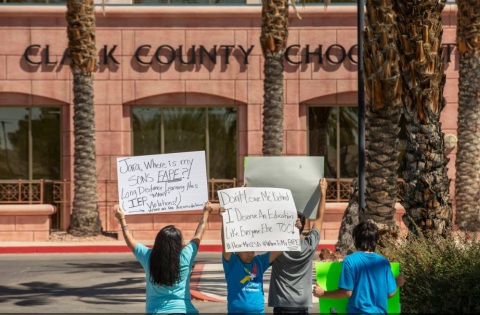Parents’ lawsuit alleges CCSD ignoring students with special needs

Parents of students in special education are suing the Clark County School District in federal court over distance learning, charging that CCSD failed to provide their children with an adequate education during school closures.
The class action lawsuit, filed on Aug. 21 in District Court, was brought by eight CCSD parents on behalf of their children, all of whom receive special education services defined by Individualized Education Plans. It also names Superintendent Jesus Jara, Region 1 Superintendent Dustin Mancl, the CCSD trustees and the district as defendants.
Similar cases have been filed in Hawaii, Pennsylvania and New York — the latter representing students nationwide, said Perry Zirkel, University Professor of Education Law at Lehigh University, who writes about special education law on his blog. Most of the lawsuits are still pending.
Zirkel said the novelty of the situation will leave courts and hearing officers to interpret the law: They could decide that the provisions of federal special education law cannot be set aside during the pandemic, especially since Congress did not offer a waiver to do so earlier this year.
On the other hand, they could decide that COVID-19 poses such an emergency, that school districts can’t be expected provide all the services they would during a normal school year.
A middle-ground approach, utilized in one Washington court case, would effectively treat each complainant separately, determining which specific services they were denied and what they may be entitled to in the form of compensatory education.
“COVID19 is literally unprecedented. ... Not only has it never happened before, we don’t have any court decisions to follow either,” Zirkel said.
While the U.S. Department of Education provided some guidance in March, the wording left much open to the interpretation, Zirkel said, and is ultimately non-binding. It asks school districts to ensure to the greatest extent possible that students with special needs receive the services outlined in their plans.
“But what does possible mean?” he said. “It’s very ambiguous, because on one hand it means every effort that isn’t impossible, whereas in the Washington case, they interpreted possible to mean every effort reasonably feasible.”